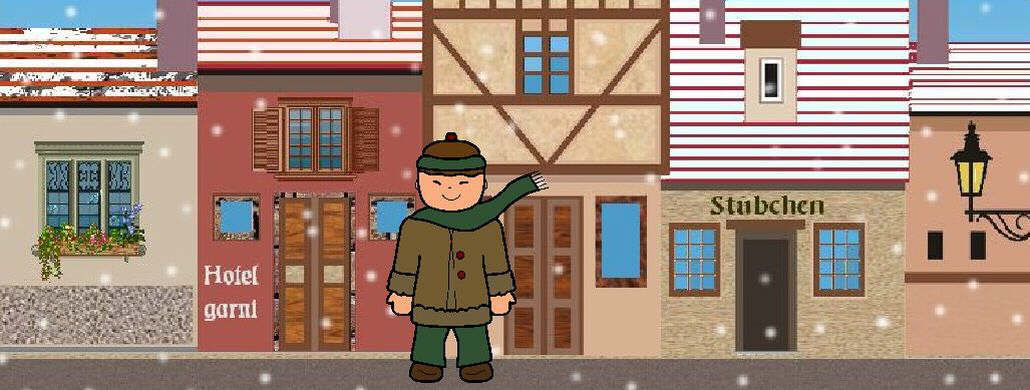
[Rhineland, spring 1920] The young Republic was overshadowed by political turmoil and great need. Many people blamed the republican politicians rather than the wartime leaders for the defeat and the hard Treaty of Versailles.
Back to normality
In the occupied Rhineland, people did their best to rebuild their lives after the war. Max had found a job as a railroad engineer, and was glad that he could contribute to rebuild the railway services around Bonn. Kathi got her degree as a winemaker and started working on her family’s vineyard.
Also in the “Stübchen” it was always busy. Every so often, Jacob watched the two ladies Susan and Helene, and then he smiled. Kindheartedness, energy and business sense were wonderfully combined in their personalities. In the sewing room on the left side of the house, small works of art came into being by Helene’s skillful hands. In the guest room on the right side there were tables and chairs, the shelves and the counter. The shelves were mostly empty, the tables and chairs had become rickety, the curtains on the windows were tattered.
But in spite of all that, one sensed the tradition of these rooms. For generations, the family and he had served coffee, tea and hot chocolate. Countless children had come to him after school, got a meal, and made their homework while their parents were working. And again and again, they had looked quite fascinated at his big dinosaur model on top of the shelf.
The “Stübchen” goes on
Yes, the “Stübchen” would go on, even when he would not be there anymore. Jacob was more than happy that Susan would stay and take over from him. He was already looking for new ways where to buy cocoa and coffee on fair terms. Fortunately, the late Count Andras Csabany had generously supported the “Stübchen”, and his son Joscha continued the tradition. Max and Walter were busy repairing the furniture to the best of their ability, and Helene was sewing new curtains – as best she could with the old fabric remnants pieces she had. “Everybody can do ‘nouveau riche and no patches'”, she said, “but who has so much charm and a hundred years of tradition as our ‘Stübchen’?
Helene would stay, Joscha had made her tempting offer. “Can you imagine teaching here?” he had asked, and Helene was more than willing to accept. Joscha and Lottie in turn were besides themselves with joy that they could continue their mother Sophie’s life’s work.
“Army coats” for the children
Soon after her wedding, Kathi received a phone call from Chiara in Coblenz. The AFG had equipment that they did not need any more and wanted to sell – Kathi should come and bring the fabulous seamstress Helene with her.
Two days later they met Chiara in Coblence. She took them to the salesrooms. “Look, big pots and ladles, you can also have canned foot, and here is a big pile of good uniform cloth, it keeps you warm.” Helene was thrilled: “These cloths would make great coats for the children!” Kathi was glowing. “Deal,” she said joyfully and gave Chiara a big hug, “now Grandpa Lorenz would be mighty proud of you!”
Helene’s coats made from uniform cloth were a great success. Soon the demand was so high that she was glad to have help from girls and women who came to the “Stübchen” to learn sewing with her. When the news spread from where she had the cloth, people from all around wanted to be every bit as generous. Wealthier people brought her their remnants, the officers in the barracks at Bonn looked for cloth, even the carnival societies brought her their uniform cloth. “We cannot celebrate carnival, so let’s make sure our kids are warm.”

Be the first to comment